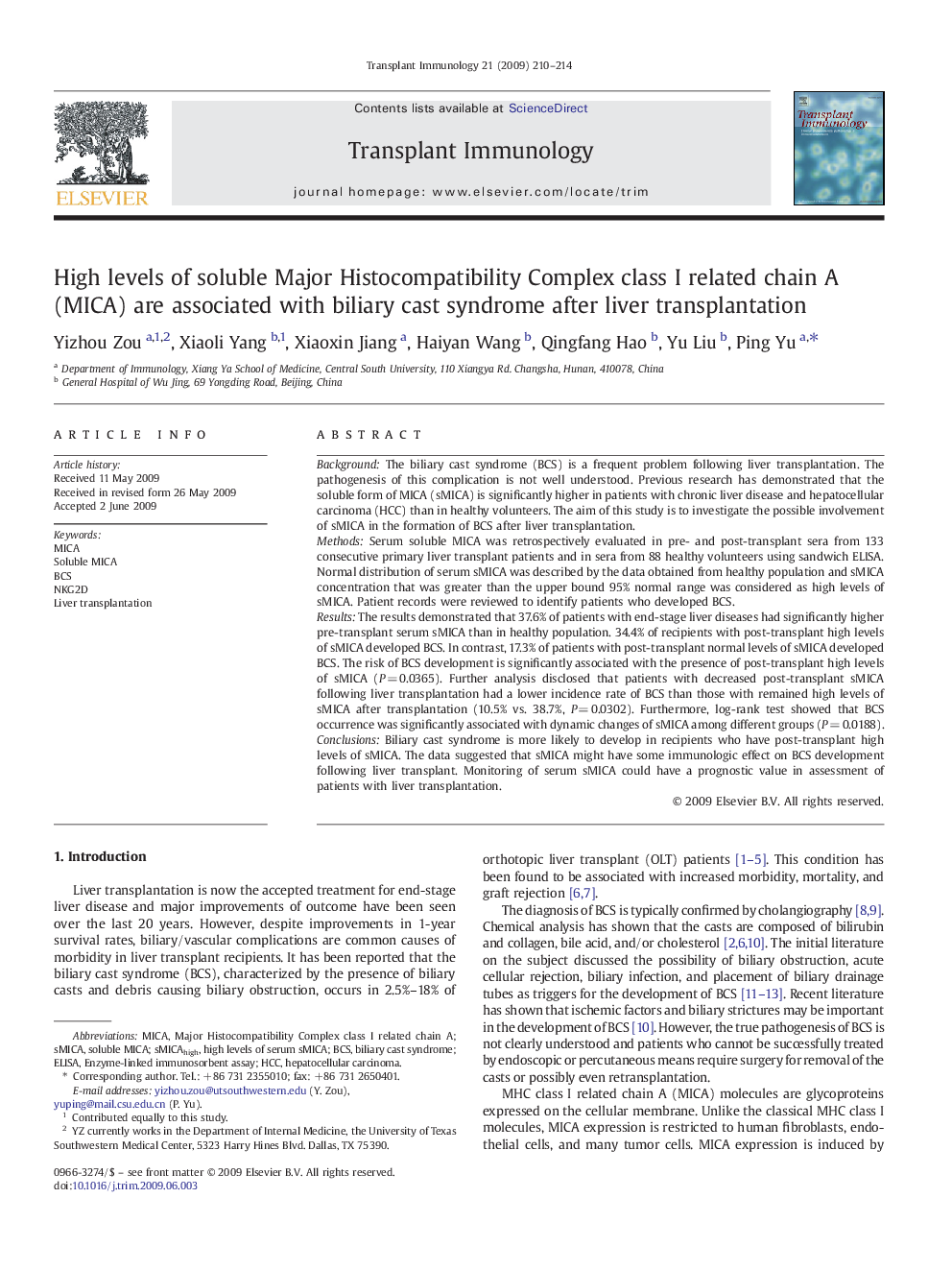| Article ID | Journal | Published Year | Pages | File Type |
|---|---|---|---|---|
| 3392376 | Transplant Immunology | 2009 | 5 Pages |
BackgroundThe biliary cast syndrome (BCS) is a frequent problem following liver transplantation. The pathogenesis of this complication is not well understood. Previous research has demonstrated that the soluble form of MICA (sMICA) is significantly higher in patients with chronic liver disease and hepatocellular carcinoma (HCC) than in healthy volunteers. The aim of this study is to investigate the possible involvement of sMICA in the formation of BCS after liver transplantation.MethodsSerum soluble MICA was retrospectively evaluated in pre- and post-transplant sera from 133 consecutive primary liver transplant patients and in sera from 88 healthy volunteers using sandwich ELISA. Normal distribution of serum sMICA was described by the data obtained from healthy population and sMICA concentration that was greater than the upper bound 95% normal range was considered as high levels of sMICA. Patient records were reviewed to identify patients who developed BCS.ResultsThe results demonstrated that 37.6% of patients with end-stage liver diseases had significantly higher pre-transplant serum sMICA than in healthy population. 34.4% of recipients with post-transplant high levels of sMICA developed BCS. In contrast, 17.3% of patients with post-transplant normal levels of sMICA developed BCS. The risk of BCS development is significantly associated with the presence of post-transplant high levels of sMICA (P = 0.0365). Further analysis disclosed that patients with decreased post-transplant sMICA following liver transplantation had a lower incidence rate of BCS than those with remained high levels of sMICA after transplantation (10.5% vs. 38.7%, P = 0.0302). Furthermore, log-rank test showed that BCS occurrence was significantly associated with dynamic changes of sMICA among different groups (P = 0.0188).ConclusionsBiliary cast syndrome is more likely to develop in recipients who have post-transplant high levels of sMICA. The data suggested that sMICA might have some immunologic effect on BCS development following liver transplant. Monitoring of serum sMICA could have a prognostic value in assessment of patients with liver transplantation.
